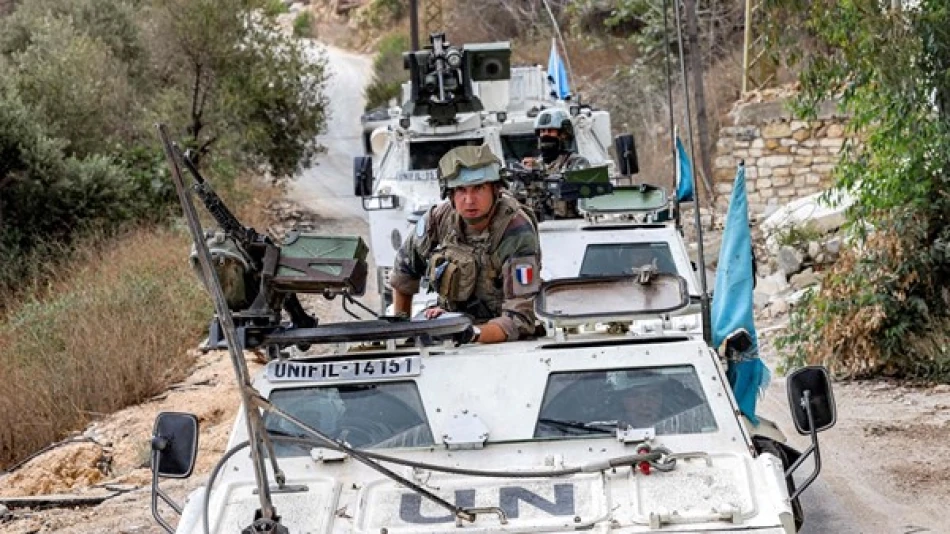
UN Security Council Decides to Withdraw UNIFIL from Lebanon by 2027
UN Security Council Sets 2027 Deadline for UNIFIL Withdrawal from Southern Lebanon
The UN Security Council has unanimously approved what it calls the "final extension" of the United Nations Interim Force in Lebanon (UNIFIL), setting a firm 2027 deadline for the peacekeeping mission's complete withdrawal after nearly five decades of operations along Lebanon's volatile southern border.
A Historic Decision After 46 Years
The Security Council resolution extends UNIFIL's mandate until December 31, 2026, followed by a one-year coordinated withdrawal process beginning immediately afterward. This marks the first time the international body has established a concrete end date for the mission, which has operated in southern Lebanon since 1978.
The unanimous vote signals rare international consensus on a Middle Eastern security issue, suggesting growing fatigue with open-ended peacekeeping commitments that have shown limited progress toward lasting regional stability.
Why Now? Shifting Geopolitical Calculations
Regional Power Dynamics
The decision comes amid significant shifts in Middle Eastern geopolitics. Lebanon's ongoing economic collapse, Hezbollah's entrenchment in the south, and changing Israeli security priorities have fundamentally altered the strategic landscape since UNIFIL's establishment following Israel's 1978 invasion.
Unlike successful peacekeeping transitions in places like East Timor or Sierra Leone, UNIFIL has operated in a frozen conflict zone where the underlying tensions between Israel and Hezbollah remain unresolved. The mission's inability to prevent arms smuggling or fully implement UN Resolution 1701 has raised questions about its long-term effectiveness.
International Donor Fatigue
UNIFIL's annual budget exceeds $500 million, making it one of the UN's most expensive peacekeeping operations. Contributing nations, particularly European countries providing troops and funding, have increasingly questioned the return on investment for a mission that has struggled to achieve its core objectives.
Market and Security Implications
Lebanese Economic Impact
UNIFIL's presence has provided economic benefits to southern Lebanon through local procurement, employment, and infrastructure projects. The planned withdrawal could exacerbate economic hardship in a region already devastated by Lebanon's financial crisis, potentially increasing migration pressures toward Europe.
Regional Stability Concerns
The withdrawal timeline creates a two-year window for regional actors to either resolve underlying tensions or prepare for a post-UNIFIL security environment. Israel may need to reassess its northern border defense strategy, while Lebanon faces the challenge of asserting state control over territory long dominated by Hezbollah.
Precedent for Future Peacekeeping
This decision reflects broader UN peacekeeping reforms emphasizing exit strategies and measurable outcomes. Unlike the indefinite missions in Cyprus or Western Sahara, the Lebanon withdrawal establishes a template for ending long-running peacekeeping operations that have reached strategic dead ends.
The success or failure of UNIFIL's managed exit will likely influence future Security Council decisions on similar missions worldwide, making Lebanon a test case for the UN's evolving approach to international peacekeeping in complex conflict zones.
The Road to 2027
The two-year timeline provides limited opportunity for breakthrough diplomatic progress, but sufficient time for orderly transition planning. Key stakeholders now face pressure to develop alternative security arrangements or risk creating a dangerous vacuum in one of the Middle East's most sensitive border regions.
The unanimous Security Council vote suggests international powers believe the benefits of withdrawal outweigh the risks of continued indefinite deployment—a calculation that will be tested as 2027 approaches.
Most Viewed News

 Layla Al Mansoori
Layla Al Mansoori






